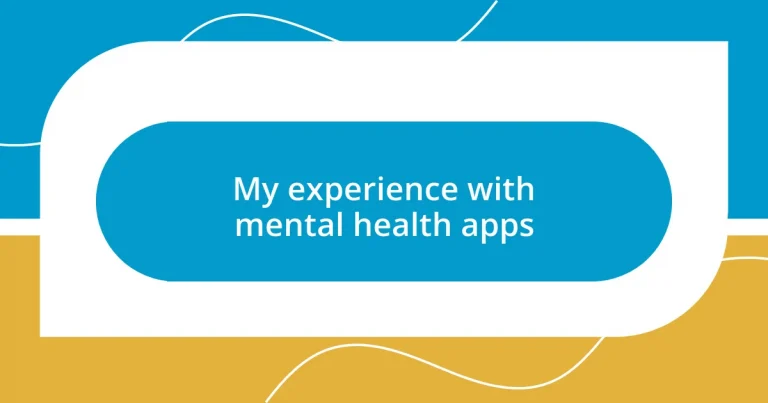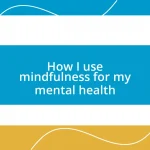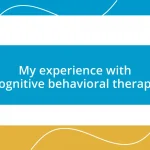Key takeaways:
- Mental health apps provide valuable tools for emotional support, such as mood tracking, journaling, and guided meditations, enhancing personal well-being.
- While these apps can foster a sense of community, they may also create feelings of overwhelm and anxiety due to excessive notifications and usability issues.
- Privacy concerns linger for users; the vulnerability of sharing personal insights raises questions about data security, impacting trust in these platforms.
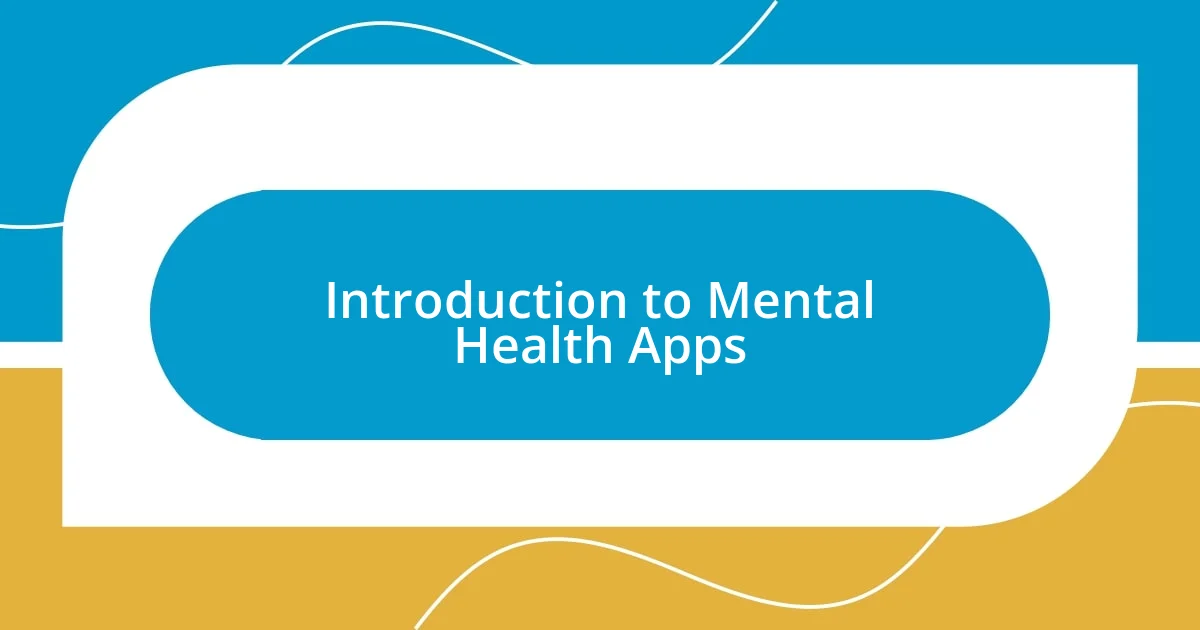
Introduction to Mental Health Apps
Mental health apps have surged in popularity, becoming accessible tools for many seeking support. I still remember the first time I stumbled upon one during a particularly tough day. It felt like finding a hidden gem that might just hold the key to understanding my feelings better.
These apps cater to a variety of needs—from tracking moods and journaling to offering guided meditations and therapy sessions. Have you ever wondered how technology can fit into something as personal and intricate as mental well-being? I was initially skeptical, but using these apps allowed me to articulate my thoughts and emotions in ways I hadn’t done before.
Engaging with mental health apps is more than just convenience; it offers a sense of companionship during lonely moments. There were nights when I turned to my favorite app for a calming meditation, almost as if I were having a heart-to-heart with a friend. This transformative experience made me realize that sometimes support can be just a tap away, blending the lines between health and technology in a truly meaningful way.
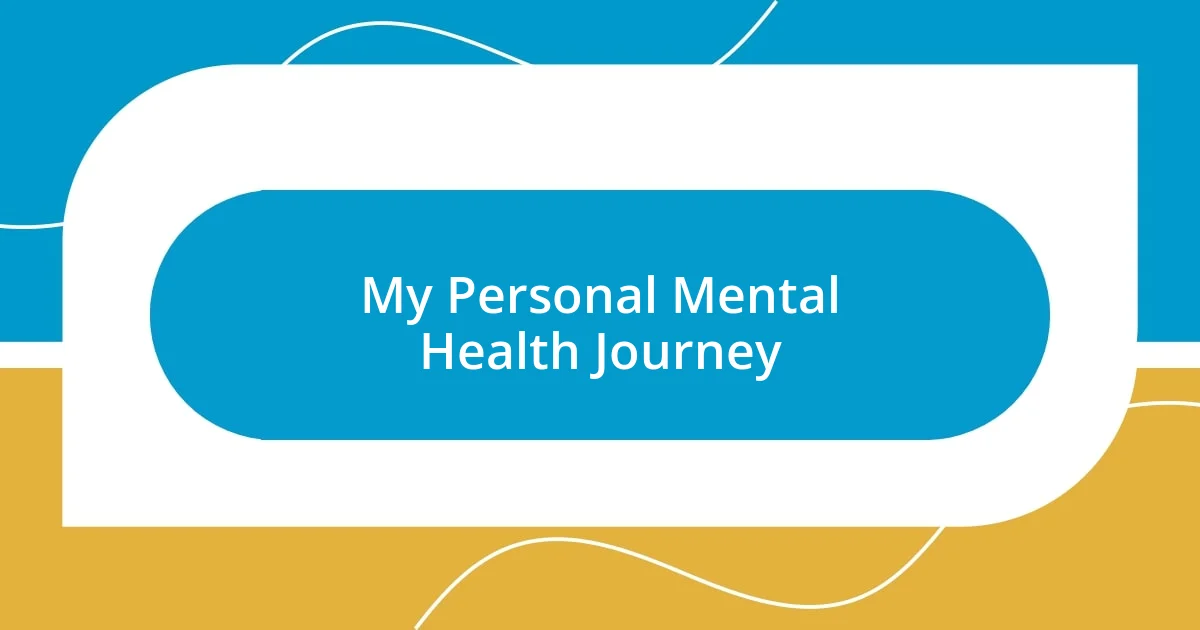
My Personal Mental Health Journey
As I navigated my mental health journey, the ups and downs felt like an endless rollercoaster ride. I vividly remember a night when I was overwhelmed by anxiety, pacing back and forth. In that moment of desperation, I opened an app that provided a simple breathing exercise. Within minutes, I felt my heartbeat slow, like a soothing balm on my racing thoughts. This small act became a lifeline during those chaotic times.
- The realization of how technology could support my mental health was profound; it was like finding a reliable ally.
- Tracking my moods not only helped me identify triggers but also provided an empowering sense of ownership over my feelings.
- I found journaling through the app to be incredibly revealing, prompting me to confront emotions I had buried beneath daily distractions.
- Connecting with guided meditations turned out to be a comforting ritual—a way to gift myself moments of peace amidst the storm.
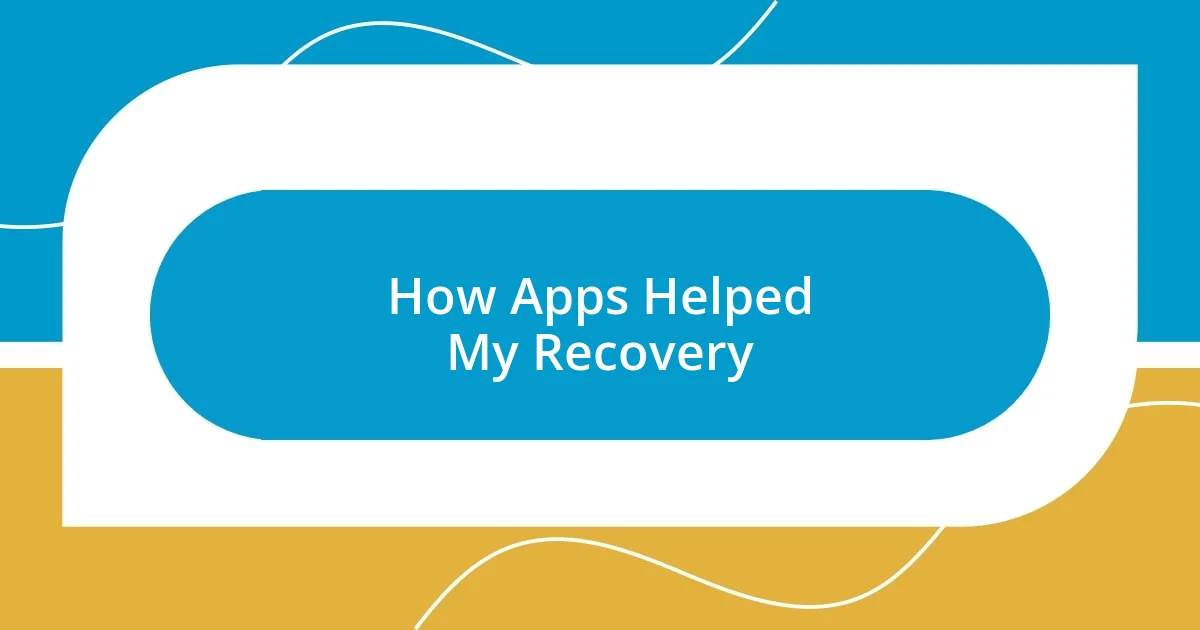
How Apps Helped My Recovery
Using mental health apps was a game changer for me. One evening, after a particularly tough day, I found myself scrolling through one and discovered a journaling feature. Writing down my thoughts felt like releasing a weight I didn’t even know I was carrying. The prompts often uncovered feelings I overlooked in the hustle of everyday life.
What struck me most was the habit tracking aspect in these applications. After a few weeks, tracking my moods helped me realize patterns in my emotions. There were days when I hadn’t even recognized my irritability as a sign of anxiety until I saw the data in front of me. This insight was like having a personal coach guiding me toward understanding myself better.
I also enjoyed the sense of community embedded within some apps. Sometimes, when I felt utterly alone, reading testimonials from others in similar situations ignited a spark of hope. It reminded me I wasn’t the only one fighting those internal battles; we were all part of a greater narrative. There was a comforting symmetry in knowing others found solace in the same digital space.
| App Feature | Benefit |
|---|---|
| Journaling | Helped articulate and release hidden emotions. |
| Mood Tracking | Identified emotional triggers and patterns. |
| Community Support | Created a sense of connection and shared experiences. |
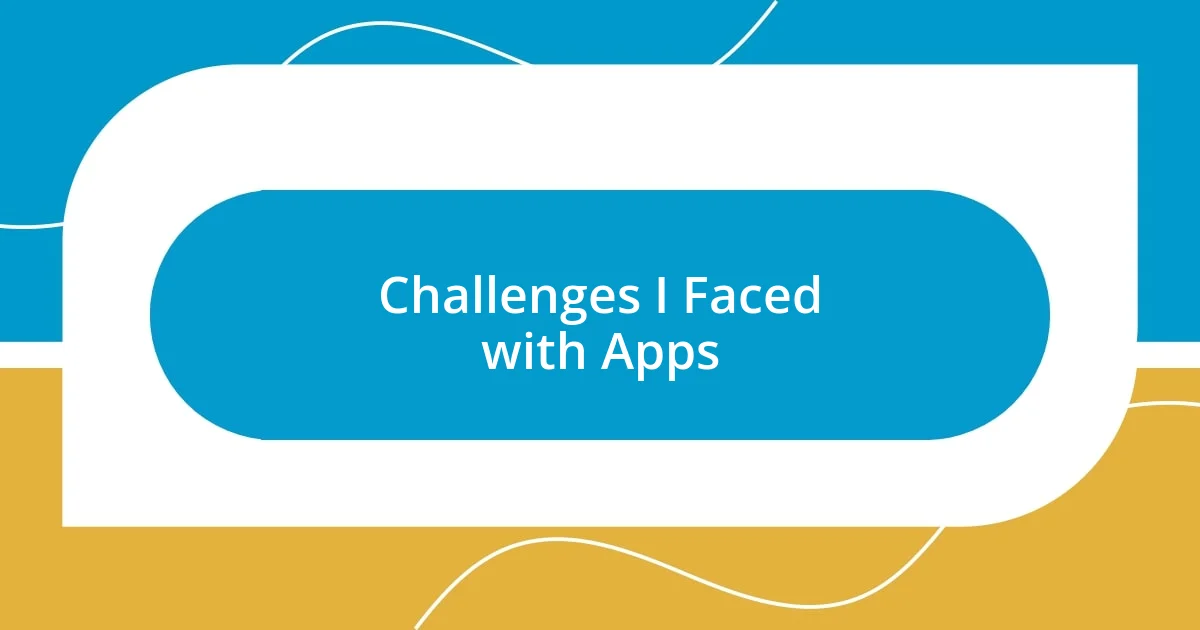
Challenges I Faced with Apps
The challenges I faced with mental health apps were often tied to inconsistencies in user experience. I remember downloading one app that promised tailored meditation sessions. However, navigating its interface felt like wandering through a maze. The frustration of trying to find the right session often led to me abandoning it altogether, leaving me feeling even more disconnected from my intentions. Isn’t it ironic how something meant to facilitate peace can instead create stress?
Another hurdle was the overwhelming amount of information available. I often found myself bombarded with notifications and reminders, which initially felt encouraging but quickly turned into noise. I distinctly recall one week where I felt compelled to check in every day. However, logging my emotions began to feel like an obligation rather than a helpful tool. The pressure to constantly engage left me questioning whether these apps were serving my mental health or becoming yet another source of anxiety.
Privacy was another concern that lingered in the back of my mind. I often wondered, how secure is the information I was sharing? After entering personal thoughts and feelings, I felt a twinge of vulnerability each time, worried about how my data would be used. The fear of losing my privacy sometimes overshadowed the potential benefits of these platforms, making me hesitant to fully embrace them and share my truth.












